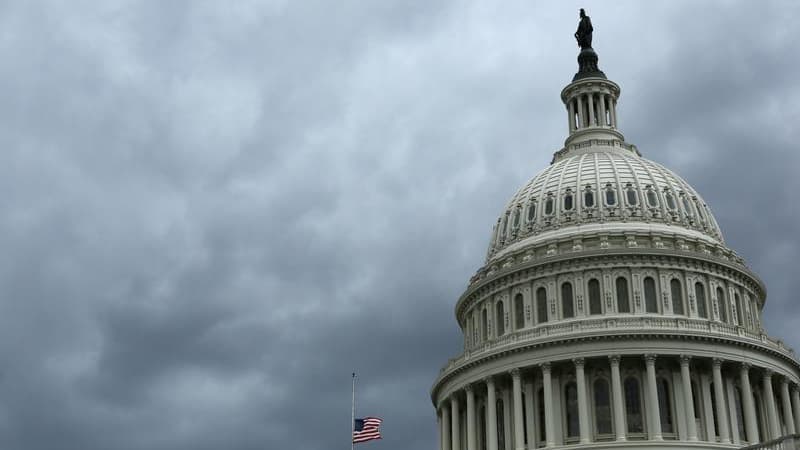Will the United States be able to pay its officials next week? The world’s largest economy once again faces the threat of its administration’s paralysis due to a political blockade, four months after being on the brink of default.
The 2024 budget must be adopted by Congress by October 1. But without an agreement between Democrats and Republicans, the federal administration will have to suspend certain payments.
And the first victims would be the approximately two million federal officials who would see their salaries suspended for the duration of the “shutdown.”
“Close”
Just over a year before the presidential elections, in which Democratic President Joe Biden is a candidate, the two parties are at odds.
The White House added another layer on Monday, accusing “Republican extremists in the House” of risking “compromising vital food assistance for nearly seven million vulnerable women and children,” at the risk of “playing with the lives of people”. a possible paralysis of federal public services, effectively cutting these federal expenses.
Tensions are crystallizing over additional aid to Ukraine, following Ukrainian President Volodymyr Zelensky’s visit to Washington on Thursday.
Both parties in the Senate are in favor. But in the House of Representatives, a handful of elected officials on the Trumpist right are refusing to cast their votes.
“I will not vote to spend a single cent on the war in Ukraine. I am in favor of America first,” declared Republican Marjorie Taylor Greene, a close friend of Donald Trump, on Friday in a video filmed in front of a camera. published on the social network X (formerly Twitter).
Also in a gym, with an American flag in the background, another elected official, Eli Crane, also posted a video criticizing this aid: “People in my district, and across the country, are so tired of funding others.”
Recurrent tensions
The necessary budget vote in Congress regularly turns into a stalemate, with each side raising the specter of shutting down federal services to extract concessions from the other. Generally with a last minute resolution.
But these recurring tensions are exacerbated this year by polarization in Congress.
On the Senate side, the leaders of both parties, Chuck Schumer for the Democrats, Mitch McConnell for the Republicans, two veterans of politics, continue to argue.
“(We) are strongly in favor of aid to Ukraine,” Chuck Schumer told CNN on Friday, saying he was “very, very optimistic.”
If no agreement is reached, a draft interim budget could be adopted, offering elected officials a few months of breathing space to find common ground.
This threat of paralysis comes just four months after the previous saga, that of the debt ceiling, whose consequences would have been even more significant, with a possible default by the United States.
“Small group of extremists”
As part of the deal that was signed, Democrats agreed to limit certain spending, which should have allowed the budget stage to go smoothly.
However, “today, a small group of extremist Republicans do not want to respect the agreement and all Americans could have to pay the price,” lamented Joe Biden on Saturday.
“We need to lock ourselves in a room and solve the problem,” Republican elected official Tony Gonzales said Sunday.
“I don’t want a shutdown, but I’m sure the country is heading toward one and everyone needs to prepare for it,” he added.
Among the expected consequences is the possibility that certain food aid checks will not be sent. Air traffic could be affected, national parks not maintained, etc. Officials considered “non-essential” will have to stay home and will only receive their salaries once the problem has been resolved.
The country has experienced four major “shutdowns” since 1976. The last, the longest, lasted more than a month in late 2018 and early 2019, reducing US GDP by $3 billion, according to the services. .of the Congressional Budget (CBO).
Source: BFM TV


